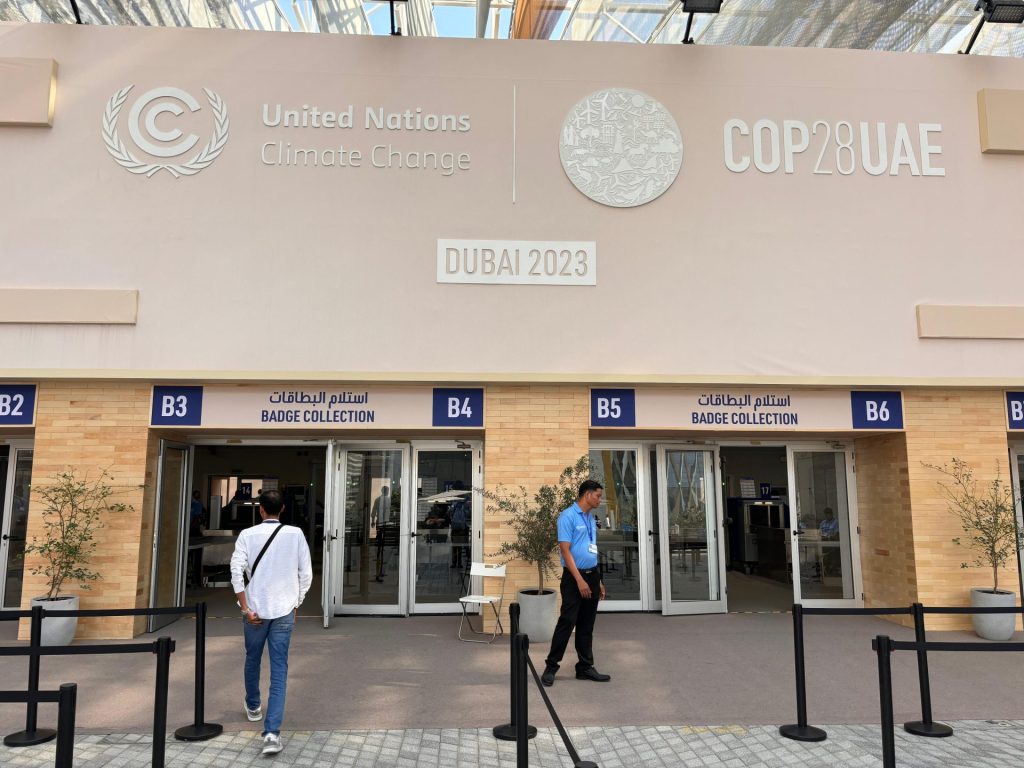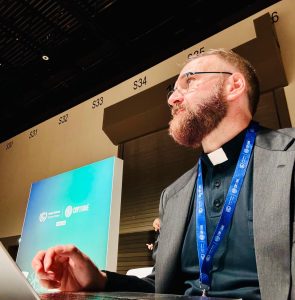
COP 28 has come to an end after two weeks of hard work. There were intense negotiations among the parties, which lasted through the night to reach consensus on key issues on mitigation, transition financing, the expansion and operationalization of the loss and damage fund, and aid for adaptation to climate change. The final galveling of each working document came a day later than scheduled, on the morning of Wednesday, December 13 in Dubai.
The most eagerly awaited document at this COP was the GST (Global Stocktake), as this UNFCCC document will in a way set the roadmap for the period up to 2030 in terms of mitigation, adaptation and financial support.
After the closing of the last cycle of IPCC Climate Change Reports (2021-2023), science put concrete deadlines and quantities to achieve the decarbonization of societies. Science clearly indicated that the peak of greenhouse gas emissions must be reached by 2025 and immediately start reducing CO2 emissions by 43% by 2030, 60% by 2050 and by 84% by 2050, compared to 2019 global emissions, in order to achieve meeting the Paris Agreement’s global warming target of no more than 1.5°C. A goal that maintains the security of the sustainability of life on earth, as we have known it until today.
For their part, the World Energy Agency in its report on the “Zero Net Emissions Scenario 2050” (2023) and other academic institutions warn that to achieve these goals we must move forward by abandoning fossil fuels in an orderly, gradual and equitable manner, so as not to leave anyone behind. They also point out that relying on carbon capture and storage technologies to continue producing “abated” or “mitigated” fossil fuels is not an appropriate strategy because of the scale of the crisis, because it cannot be applied in all circumstances, because it can needlessly delay the most effective decisions, and because it has dangerous consequences in certain circumstances. Blithely betting on this alternative translates, in COP language, as “phasing out or phasing down unabated fossil fuels or just coal”.
The Church’s position, guided by the precautionary principle and the knowledge provided by science, was clearly expressed by Pope Francis in his address at the beginning of COP28:

Friar Eduardo Agosta Scarel, senior advisor to the Laudato Si’ Movement and member of the Holy See delegation present in Dubai
“May this COP be a turning point, manifesting a clear and tangible political will, leading to a decisive acceleration towards ecological transition, by means of forms that possess three characteristics: ‘that are efficient, that are obligatory and that can be easily monitored’ (LD, 59). And that they be realized in four fields: energy efficiency, renewable sources, elimination of fossil fuels, and education to lifestyles less dependent on the latter.”
Therefore, the position of the Holy See maintained throughout the discussions, in terms of mitigation, has been to bet on a transition away from, or phasing out, fossil fuels, in an accelerated, orderly, equitable and just manner, leaving no one behind, in line with the best available science. This position has been shared by more than 120 countries at this COP. This is a great achievement at this COP that we must highlight. As UN Secretary General Antonio Guterres said: “Whether you like it or not, the phase-out of fossil fuels is inevitable”.
Notwithstanding the above, the GST paragraphs on mitigation, finally adopted, focus mainly on coal, and do not mention oil and gas; the fossil fuel phase out focuses only on the power sector, not on all fossil fuels; they include loopholes such as “unabated” and “inefficient”; they do not recognize the need to end expansion; and there is insufficient linkage to fossil fuel phase-out financing for developing countries.
Consequently, the adopted text does not address an “orderly, equitable, leave-no-one-behind phase-out of fossil fuel production and consumption in line with the best available science, which is what Pope Francis’ call for energy efficiency, the elimination of fossil fuels and an increase in renewable energy sources implies.
Nor has the Church’s call for political and social education for transitioning towards sustainable lifestyles and sustainable patterns of production and consumption with the goal of achieving sustainable pathways of integral human development.
Despite these gaps, there is a great light of hope, as the growing number of countries that have called for the elimination of fossil fuels at this summit is a break from the intransigence and parsimony of the last 8 years of climate summits, after the Paris Agreement. This number was unthinkable a year ago, when only three nations were demanding it.
It is true, it seems that it is only about words, but words in UN conferences are capable of creating new opportunities, new worlds, in which cooperation, dialogue, and the construction of the common good are possible, as young people and the future generation demand from us.
For us the goal is clear: to accelerate the transition away from fossil fuels in a just, orderly and equitable manner, leaving no one behind, in this critical decade, in order to keep global warming below 1.5°C within our reach, ensuring a livable earth for all, in this common home.





